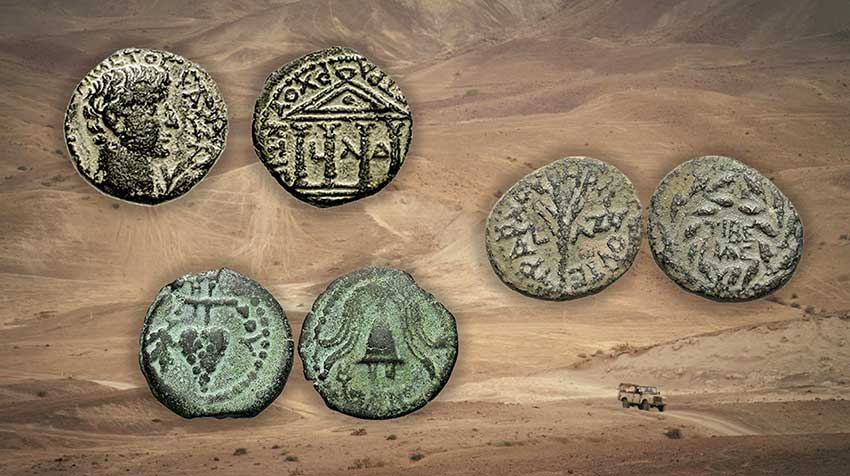
Herod Archelaus
In the Gospel of Matthew we read that God sent an angel to warn St Joseph not to go to Judea after the time in Egypt because Archelaus, the son of Herod, reigned there. What sort of person was Archelaus? Was he too someone to be feared like his father?
Before King Herod died in 4 BC, he provided for three of his sons to be put in charge of different parts of his kingdom. Archelaus was to rule over Judea, Samaria and Idumea. This was half of his father’s kingdom.
Archelaus was born in 23 BC, so when he assumed power he was only 19 years of age. He reigned for nine years, until 6 AD, when he was removed by Caesar Augustus.
Archelaus was in fact not much different from his father. Shortly after assuming power he had to contend with the fact that his father King Herod, just before his death, had ordered the execution of two teachers and 40 youths who had removed the golden eagle Herod had erected over the entrance to the temple. Many considered the eagle to be a blasphemous symbol and so they had chopped it down with axes. King Herod had also ordered the killing of all male lineal descendants of his predecessors, the Hasmoneans.
According to the account given by Jewish historian Flavius Josephus, when Archelaus began his reign, just before Passover in 4 BC, he ascended a golden throne, dressed in white and showed kindness to the people in Jerusalem in order to satisfy their desires for lower taxes and an end to the political imprisonment of Herod’s enemies. At some point the crowd began to call for the punishment of those who had ordered the death of the two teachers and the 40youths. They also demanded the replacement of the high priest appointed by King Herod with one of greater piety and purity.
Archelaus acceded to these requests, although he became ever more angry with the presumptuousness of the crowd. He asked for moderation and told the people that all would be well if they would calm down and wait until Caesar Augustus confirmed him as king. He then went off to feast with his friends.
He asked for moderation and told the people that all would be well if they would calm down and wait until Caesar Augustus confirmed him as king. He then went off to feast with his friends.
It was evening and soon mourning and wailing for the teachers and youths began in the temple area, with the crowd becoming ever more threatening, recruiting others to their cause. Archelaus then sent a general, some others and finally a tribune in command of a cohort to convince the seditionists to stop their rioting and to wait until Archelaus could return from Rome with his mandate from Caesar Augustus.
The crowd stoned those sent by Archelaus, killing many of them. Those who had done the stoning then returned to their sacrifices in the temple as if nothing had happened. It was now after midnight. Archelaus responded by sending his whole army to the temple, where they began killing all who confronted them. Josephus records the death toll as 3000. Archelaus then sent heralds throughout the city to announce the cancellation of Passover.
Archelaus sailed to Rome to see Augustus but he was met there by a group who opposed him – his own family. Antipas, his younger brother, who had been removed from his father’s will a short time before, argued that Archelaus merely feigned grief for his father and that his actions, which resulted in the death of the 3000 in the temple, amounted to a threat to Caesar himself, since Archelaus had acted in every way like a king before he had been given that title by Caesar.
Antipas, his younger brother … argued that Archelaus merely feigned grief for his father and that his actions, which resulted in the death of the 3000 in the temple, amounted to a threat to Caesar himself
At this point Nicolaus of Damascus, who had been Herod’s confidant for years, defended Archelaus before Caesar, arguing that Herod’s last will, which named Archelaus as king instead of his brother Antipas, should be considered valid. Archelaus then fell at Caesar’s feet and Caesar raised him up, declaring that he was worthy to succeed his father, and named him ethnarch over Judea and the other territories.
When Archelaus later violated the law of Moses by marrying a woman whose husband was still alive, and he continued his cruelty, the Jews complained to Augustus, who deposed him in the 10th year of his reign and banished him to Gaul. In view of all this, it is understandable that God sent an angel to warn Joseph and Mary not to return to Judea, where Archelaus reigned.
